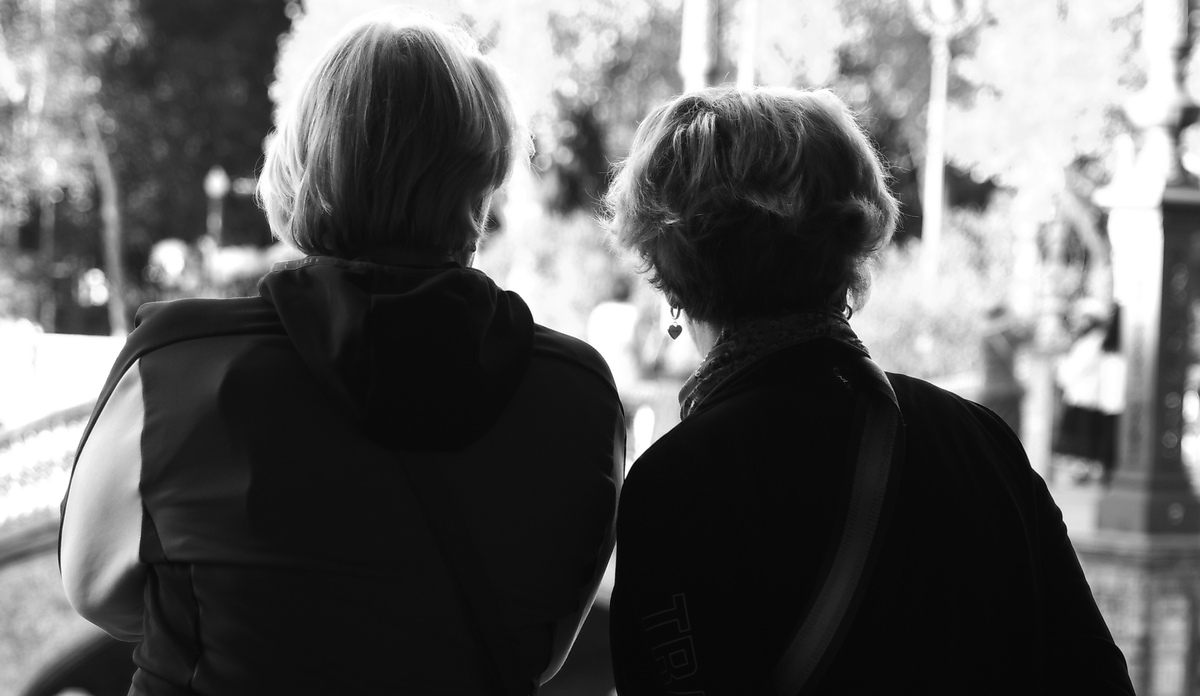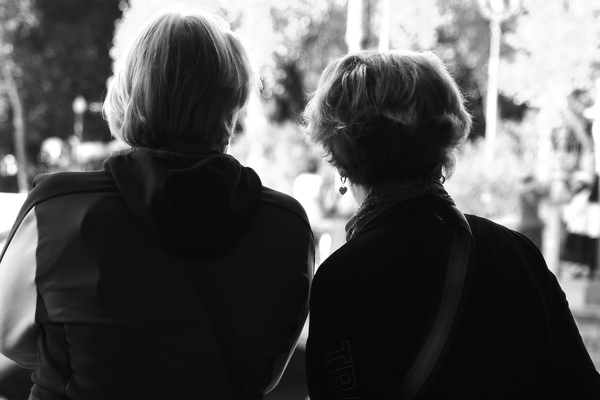
We meet up with two old friends, who come along to Bristol After Stroke’s South Gloucestershire Stroke Café every month, to talk about Wendy’s aphasia... and how having an understanding friend can be really important.
Wendy and Yvonne have been friends for some 50 years and knowing each other for so long has been a big factor in helping Wendy deal with the aphasia she developed because of her stroke last year.
Wendy’s experience of her stroke is not dissimilar to many other people’s: “It came out of the blue,” she says, “and I didn’t know I was having a stroke.
“My husband was asking me questions and I couldn’t answer them.
“Believe it or not, I went out to the kitchen and cooked a meal so that I didn't have to answer his questions! After lunch, he continued to ask questions and I still couldn't answer. That’s when he decided to call the ambulance.
“They took me into hospital, where I stayed for several days. Although I obviously had aphasia, I didn’t have any other symptoms. It didn't affect my arms or my legs. But I couldn't actually get the words out. For the first day, I could only say ‘no’ or ‘yes’.
“Luckily I found I could write. Okay, it was a bit wobbly, but I could write down what I wanted so I was able to communicate. From the second day onwards, the odd word started to come back.
“But the strange thing was, every other word that popped into my head was rude!”
“It was a bit like Tourette's basically,” adds Yvonne.
“I had to be really careful,” laughs Wendy. “Especially when the grandchildren came round!”
When Wendy came out of hospital, her son and daughter took turns to stay over the coming weeks, which was important as her husband has COPD and atrial fibrillation, and she is his carer.
Yvonne was one of her first visitors. What was her response when she saw Wendy again for the first time? “I was quite shocked when I had the call from her husband that it actually happened. But when we met, she simply let me know what was going on by writing notes, so everything turned out all right.
“When she began talking again, I simply waited for her to say what she wanted to say. I don’t prompt her… I was a nurse in the care sector, and I know not to do that.
“It's just a question of being patient.”
“But it was a surprise that Wendy had a stroke – she has such a healthy diet… but age and being diabetic are factors that can contribute to having one, and Wendy is diabetic.”
How has Wendy found other people responding to her aphasia?
“Most people are very considerate,” replies Wendy, “and give me time to talk. But occasionally they try to rush me – often because they are in a hurry themselves.
“I went to order a meal at a pub recently, and I felt rushed to give my order… and completely forgot to say that I was allergic to cheese. So the meal came with a large helping of cauliflower cheese, which I then had to send back…”
She has also made use of cards that tell someone she meets that she has had a stroke and finds it difficult to speak… and that their patience would be appreciated. On the reverse it gives important information should she require help.
And telephone calls?
“Most people who call me are friends,” she says, “and if it’s a scam I just slam the phone down!
“Very few people seem to know anything about aphasia, even though so many people do have it. One thing that did help me were the books to show what you want to say.
“My grandchildren have all been good about it… their mums have obviously had a word to say ‘You need to speak more slowly and carefully and wait for a reply’. But they’ve been brilliant.”
What would Yvonne’s advice be for someone whose friend has a stroke?
“Just be there whenever they need support, basically.
“Wendy has family around her, but having a friend who can be there for them is an important extra… someone from the outside who they can talk to. A ‘buffer’ to the outside world.”
Has the support from Bristol After Stroke helped?
“It’s been really helpful,” says Wendy, “especially the Communication Café I go to, which is not far from where I live. You know that everyone's in the same boat. It's good to talk to people who have had aphasia for a long time and find out how their condition has progressed… as well as giving us a chance to speak to each other.
“Not everyone does continue to make progress, of course, but that’s just the way it is.
“I can talk now, although it’s a little slow and I occasionally forget the odd word. And I don’t find the rude words popping into my head quite so often. I keep working hard not to say them out loud… although my husband says I do slip up from time to time!”
Photo by Jose Manuel Esp on Unsplash





